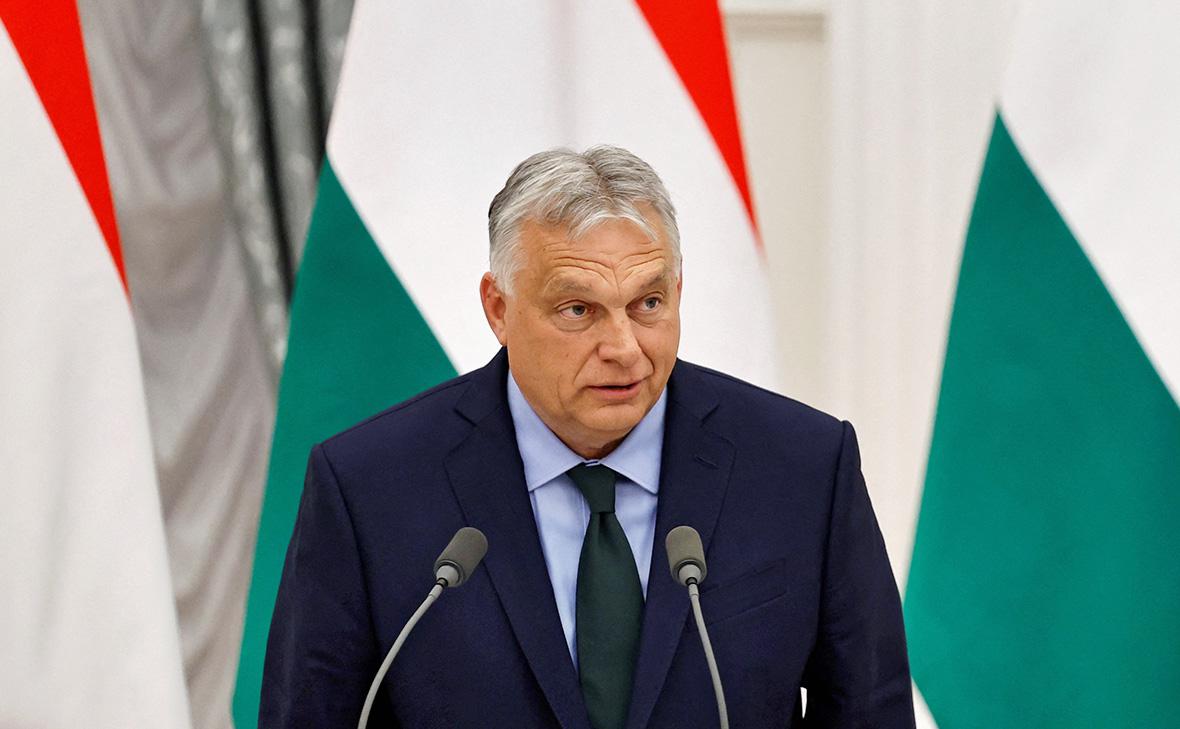“Orbanisation of Europe” and unexpected consequences: how Hungary is trying to sit on two chairs
30 July 2024 18:22 EXCLUSIVE
EXCLUSIVE
Hungary has long been balancing between Russia and European values. As you know, this EU country, during the full-scale invasion vetoed the allocation of cash tranches to our country to counter the occupier and continues to cooperate with Russia in the nuclear energy sector.
And Hungarian Prime Minister Viktor Orban himself is organising a so-called “world peacekeeping tour” to allegedly resolve the war in Ukraine.
Such actions by Hungary and Prime Minister Viktor Orban are causing increasing irritation in the European Union. In particular, Finnish Foreign Minister Elina Valtonen has recently made a statement has recently made a statement about the expediency of Hungary’s stay in the EU.
The latter statement Orban’s latest announcement regarding the expedited issuance of visas for Russians and Belarusians, who will be able to enter Hungary without security checks or other restrictions, also also caused a large wave of discussions among European parliamentarians.
For example, the Chairman of the European People’s Party, Manfred Weber, called for a discussion of this issue during the EU leaders’ summit in October. In his opinion, such actions by Budapest would allow unverified Russians to travel freely across most of the EU.
However, it remains to be seen whether Europe will limit itself to paying lip service to the issue or will actually take some action. [comersant] talked to Vitaliy Kulyk, director of the Centre for Civil Society Studies, about the “Orban effect” and how he still manages to balance between two polarly different worlds – Europe and Russia.
Opening the borders to Russians is a symbolic act on Orban’s part
This month, Hungary published details of a new fast-track visa system for citizens of eight countries, including Russia and Belarus, who will be able to enter Hungary without security checks or other restrictions.
According to Budapest, most of them will build a nuclear power plant using Russian technology. At the same time, according to Vitaliy Kulyk, Hungary’s opening of the EU doors to Russians is not an economically justified decision, but a symbolic and political act on the part of Viktor Orban.
“In this way, he (Orban – ed.) is trying to influence his European colleagues, wresting more and more concessions from them in terms of Budapest’s economic whims to address social issues, which are the basis of Orban’s domestic power, including European tranches,” Vitaliy Kulyk believes and emphasises that in this way the Hungarian leader raises the degree of tension, thus turning into a serious player on the world political scene.
“This player becomes a centre of attraction for other political forces in Europe and other countries: Slovakia, representatives of various political forces in southern and central Europe. Orban plays up his foreign policy activity and thus receives support from China, Russia and other representatives of the global south in his fronting. They are starting to talk to him as a centre of gravity, not as the leader of a European country,” the expert said, noting that Viktor Orban succeeds in this because of the “national egoism of other European countries”.
“Orban is addressing many issues of national egoism within the European project. He succeeds, and he has to be reckoned with, because the EU itself is not ready to localise this issue in any way. There are no tools and mechanisms that will effectively counteract people like Orban, and there will be more and more Orbans in the European Union,” Vitaliy Kulyk said.
In addition to Slovakia, there are other countries and politicians who see Orban as a leader and therefore support his views and policies.
“There’s Greece, there are several other countries, and let’s not forget that we have elections in Germany, the Alternative for Germany and Sarah’s party, which are gaining votes and can significantly influence Berlin’s position. So they will interact with Orban. In Moldova, one of the presidential candidates, Ion Chica, says that he is for Europe, but for Orban’s Europe. Look, even next to Ukraine, there are forces that see Orban as an alternative,” the expert believes.
The specifics of Orban’s policy
According to Vitaliy Kulyk, Orban manages to “flirt” with the aggressor country and continue to stay in the European Union because of the so-called weakness of the EU’s policy on a number of important issues.
“Hungary’s recent decisions (on accelerated visa issuance for Russians and Belarusians – ed.) demonstrate the weakness of European policy in the sector of migration control, especially in terms of access to European countries for citizens from the aggressor country and its ally. Accordingly, this unified policy is cracking and implies that there are certain problematic issues that need to be resolved and closed, otherwise the EU will not be able to have a unified position on other, not migration issues,” Kulyk explained.
At the same time, the specificity of Orban’s policy is that, despite his loud statements, he is not leaving the EU because he cannot give up the EU’s security and economic umbrella.
“He can continue to parasitise in this European system, and no Chinese or Russian grants will help him. Therefore, it is possible as a phenomenon only in the EU,” the expert said.
Therefore, Hungary is not going to leave the Union on its own.
But it is unknown whether and when Hungary will be expelled from the EU. It is also unknown whether other EU countries will decide to open their borders to Russians after Hungary. However, the fact that Viktor Orban intends to turn into an important player on the world stage, flirting even with antagonistic countries, may indicate that the paradigm of world politics is likely to change in the near future.
Author – Alyona Kaplina









